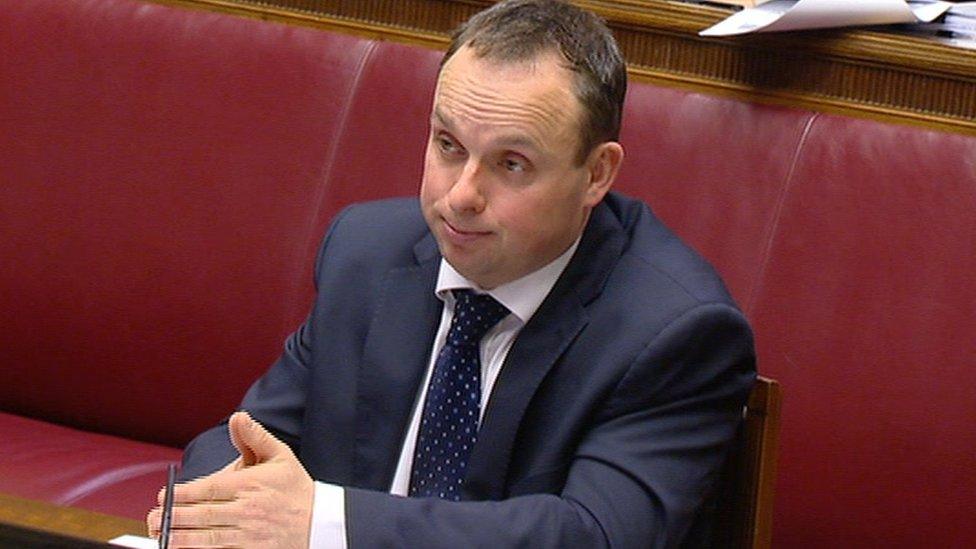RHI: DUP official says claim he delayed green scheme tariffs wrong
- Published
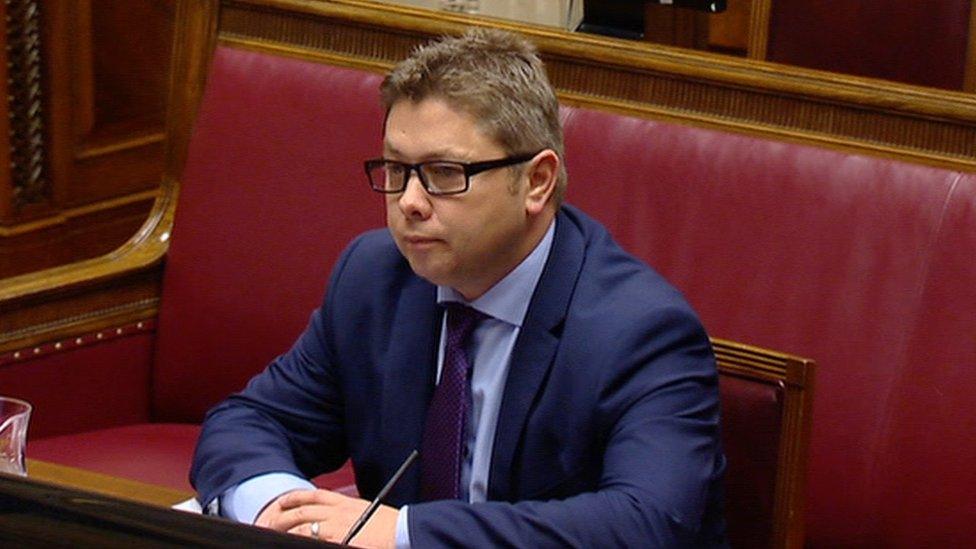
Timothy Johnston is a former special adviser to three first ministers: Ian Paisley, Peter Robinson and Arlene Foster
The DUP's chief executive has said he is "absolutely certain" he played no role in seeking to delay cost controls to NI's flawed green energy scheme.
Timothy Johnston was appearing at the inquiry into the Renewable Heat Incentive (RHI) scheme.
It was set up in 2012 to encourage uptake of eco-friendly heat systems, but overgenerous fuel subsidies left NI taxpayers with a £490m bill.
Mr Johnston was an adviser to three Northern Ireland first ministers.
When problems with the RHI scheme became public knowledge in late 2016, he was advising then First Minister Arlene Foster.
A public inquiry was set up to investigate what went wrong with RHI in January 2017.
In summer 2015, officials in Stormont's enterprise department, which had set up the scheme, had realised there were major budgetary problems and were looking at plans to bring it under control.
Ultimately a decision was taken to delay the proposed October introduction of cost controls by four weeks, meaning the tariffs did not come into force until November.
'Patently disproved'
That month saw a huge spike in applications which did the most damage to the public purse.
Mr Johnston has denied any knowledge of how that delay occurred, and said he never instructed anyone to "delay, soften or reduce" cost controls.
"I am absolutely certain there was no discussion with me about RHI or tariff controls in summer 2015 at all," he told the inquiry.
His evidence directly contradicts claims from another former DUP special adviser (Spad), Timothy Cairns, who said he was told by Mr Johnston in June 2015, to work with another Spad, Andrew Crawford, to find an alternative or to seek the latest date possible for implementing cost controls,
However, when he was asked about his recollection of the meeting, Mr Cairns told the inquiry he was "not going to go to the sword on it".
Inquiry chairman Sir Patrick Coghlin asked why Mr Cairns would have made a statement that could be so "patently disproved".
Mr Johnston replied: "Given my absolute lack of knowledge, lack of interest - it wasn't my area of expertise, the notion that I would have made any comment like that - I'm being very clear that I think Mr Cairns is wrong."
But he said he had "suggested as a practical, sensible thing to do" that Mr Cairns should refer to Andrew Crawford - his predecessor as the ministerial adviser in the enterprise department - on general matters he needed help with.
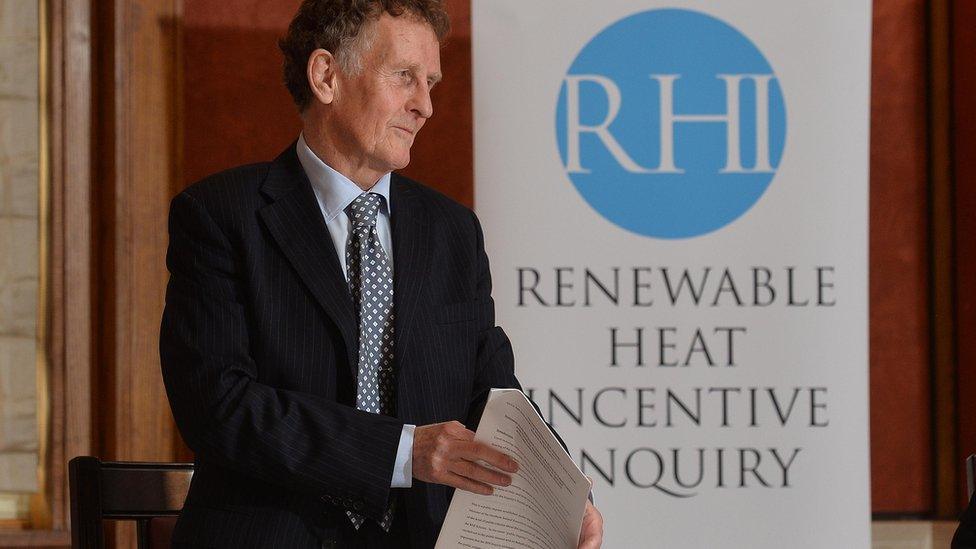
The RHI public inquiry is being chaired by Sir Patrick Coghlin and has heard 91 days of evidence so far
Earlier on Friday, Mr Johnston said the importance of his role within the DUP had been "overstated".
The inquiry has been looking at whether there was a hierarchy of special advisers within the DUP.
'Interesting exercise'
It has already heard claims that Mr Johnston was at "the top of the tree" in the party when he advised ex-enterprise minister Jonathan Bell and that he was a very "powerful individual", often intervening in party policy and staffing matters.
Mr Johnston said he undoubtedly was very close to the heart of how government worked at Stormont for a decade, but downplayed any suggestion of a formal hierarchy.
He said the inquiry has been an "interesting exercise in how other people perceive you".
But he accepted that having worked for three first ministers over that 10-year period he had "greater experience" than other DUP advisers.
'Uncomfortable'
Inquiry counsel Donal Lunny put it to Mr Johnston: "It looks like you were wearing a number of different hats - your special adviser hat, your hat where you performed a role that sounded like a chief of staff, sometimes like chief whip... you're performing a much greater role than just Spad."
Mr Johnston said he acknowledged that as time went on, he was asked to "do a number of things by various first ministers" that might have gone beyond an adviser's traditional role - but he did not insert himself into processes willingly.
He only did what was asked of him by his ministers, he added.
Mr Johnston also said he had become "uncomfortable" with what he described as a media narrative that he had effectively been running the show within the DUP.
"I don't think, in my view, it's reflective of the role I played," he added.
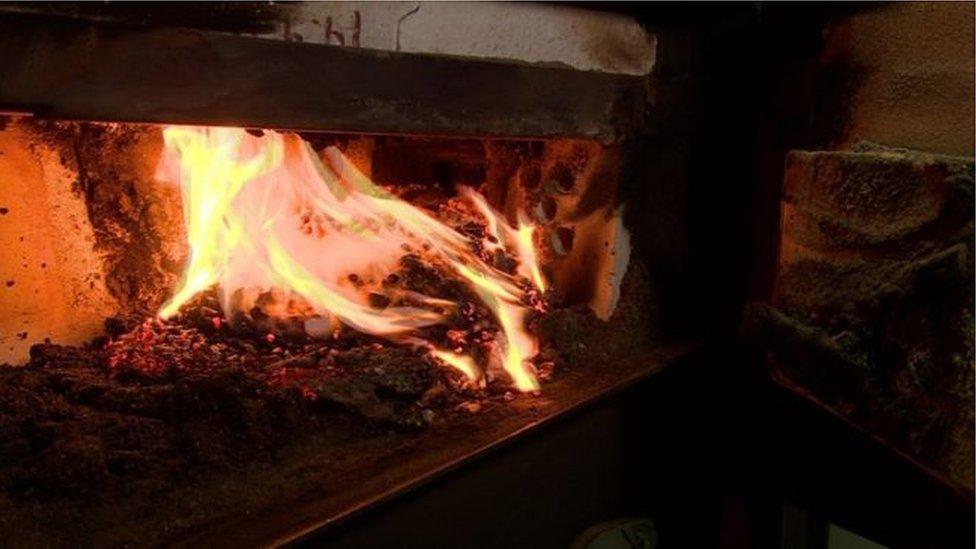
The RHI scheme was established to encourage uptake of eco-friendly heat systems over the use of fossil fuels
As part of its remit, the inquiry panel is also looking at the relationship between ministers and unelected special advisers, how advisers were appointed and how much influence they had when it came to policy making.
It has already heard evidence that a mandatory code for appointing advisers was not adhered to by the DUP.
On Friday, Mr Johnston said he acknowledged that there had been a "drift away" from the code.
The code set down rules including that the minister alone chose the appointment from a suitable pool of candidates.

Who is Timothy Johnston?
Timothy Johnston has long been regarded as perhaps the most senior backroom figure in the DUP.
In the days when the party opposed David Trimble's Ulster Unionists, Mr Johnston was its communications director, working particularly closely with Peter Robinson.
He was involved in the negotiations around the St Andrews Agreement that led to the restoration of devolution in 2007 and was an adviser at Stormont Castle for Ian Paisley, Peter Robinson and Arlene Foster.
The Paisley family publicly blamed Mr Johnston for compiling a critical survey about Dr Paisley's leadership before the party founder resigned - it was a claim Mr Johnston said was regrettable and inaccurate.
He is one of the DUP advisers that Jonathan Bell claimed would not allow the RHI scheme to close in early-autumn 2015 but he has rejected that allegation.
After the Northern Ireland Assembly collapsed in January 2017, Mr Johnston lost his job as Arlene Foster's top adviser, but that September he was appointed to a new DUP post - as the party's chief executive.

The inquiry has heard claims that Mr Johnston and another senior adviser, Richard Bullick, effectively decided on adviser appointments along with the first minister.
It meant that appointment letters signed by ministers, which suggested that they had made the appointments, were "camouflaging" the real appointments process.
Inquiry counsel Donal Lunny said the consequence of that might be to "make that Spad more loyal" to other advisers or "more focused on doing what he or she believed they wanted than on serving his or her own minister".
Mr Johnston said he acknowledged the risk in that.
Sir Patrick asked why it had been felt necessary to "ignore the act and the code", and suggested it might have been part of an attempt to "centralise power in this party".
Mr Johnston agreed that there had been an element of centralisation.
'Quite the reverse'
He said they also needed people who could negotiate with other political parties and that may not have been a skill external advisers possessed.
But Sir Patrick said that as a result of that, a very unsatisfactory situation had arisen where there were laws and a code for the appointment of advisers, which had been routinely set aside.
"You have a provision that set out what you should be doing to democratically reflect the will of the Northern Ireland people and you're not doing that, quite the reverse," he said.
Mr Johnston said there might be a place for examining relationships between the assembly and executive in future talks.
He said some things were passed by the assembly that did not "sit easy with the wider executive and sometimes were maybe even ignored".
Sir Patrick said "the man or woman in the street" would not understand why laws, codes and regulations that were meant to guide government were ignored.
Mr Johnston said political parties did not always want the public to to see the workings of the Stormont "sausage factory" because it "wasn't always pretty".
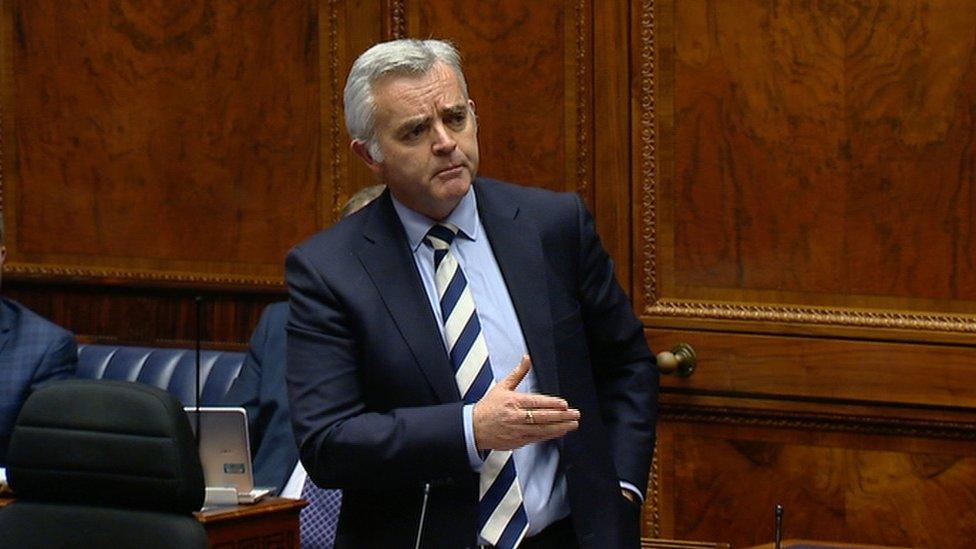
Timothy Johnston said he did not believe Jonathan Bell (pictured) was suitable to hold ministerial office
In Mr Johnston's witness statement, published on Thursday, he said he believed Jonathan Bell's lack of attention to detail in his ministerial role "must have had an adverse impact in respect of the RHI scheme".
"I never found Mr Bell to be interested in detail," he added.
On Friday, Mr Johnston said he could see how some within the DUP took the view that Mr Bell had been "protected" by former First Minister Peter Robinson.
The inquiry has heard evidence that Mr Bell was unsuitable to be appointed enterprise minister in May 2015, but that Mr Robinson had rewarded his loyalty and the men were close friends.
'Protected?'
Mr Johnston told the panel he did not believe Mr Bell had been capable of holding ministerial office at all.
"My sense was the effort wasn't always put in," he said.
He said he told Mr Robinson that Mr Bell should not be appointed, but that ultimately he could only offer advice and the decision was the first minister's to make.
Asked by Sir Patrick if he agreed with claims Mr Bell had been "protected" by Mr Robinson, Mr Johnston said he thought that was "probably too far" - but that Mr Robinson valued loyalty.
Sir Patrick pressed again: "Personal loyalty to him was obviously important and that could well be why people saw him (Mr Bell) as being protected by Mr Robinson?"
"It's quite possible," replied Mr Johnston.
Mr Johnston is expected to appear before the inquiry sometime again in October to finish giving the rest of his evidence.
- Published25 September 2018
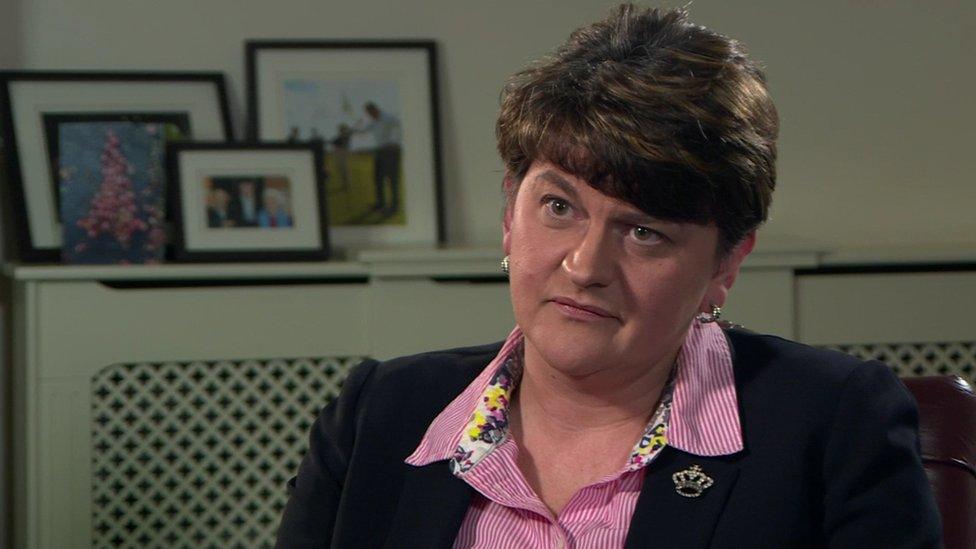
- Published21 September 2018
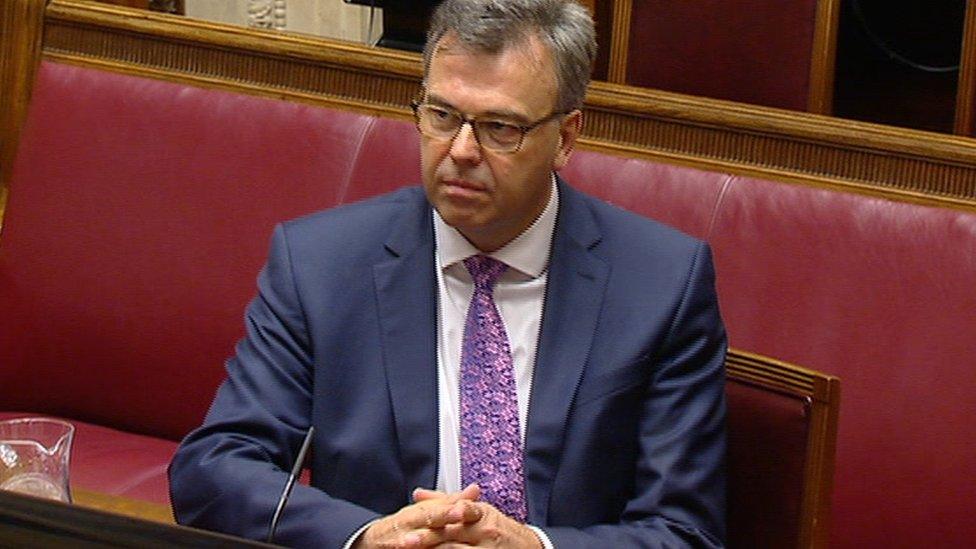
- Published20 September 2018
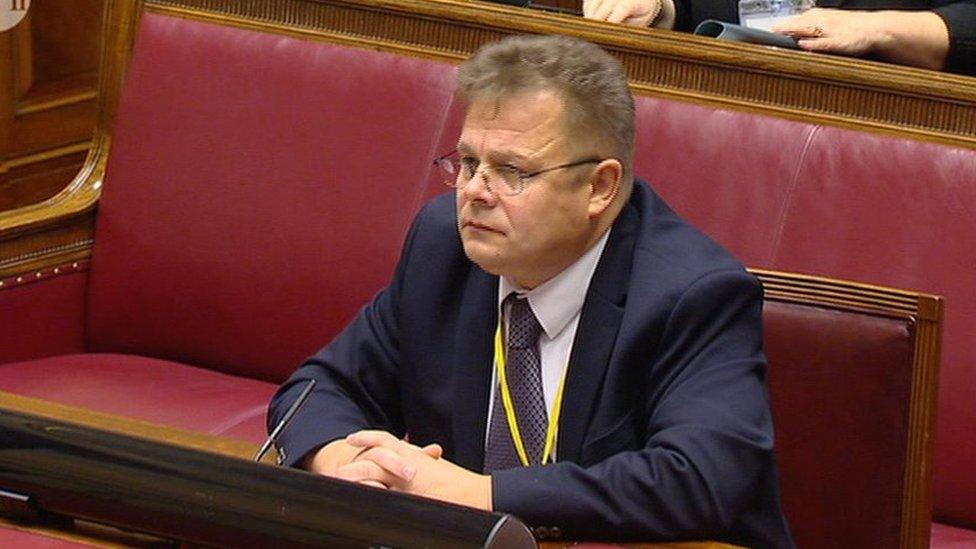
- Published14 September 2018
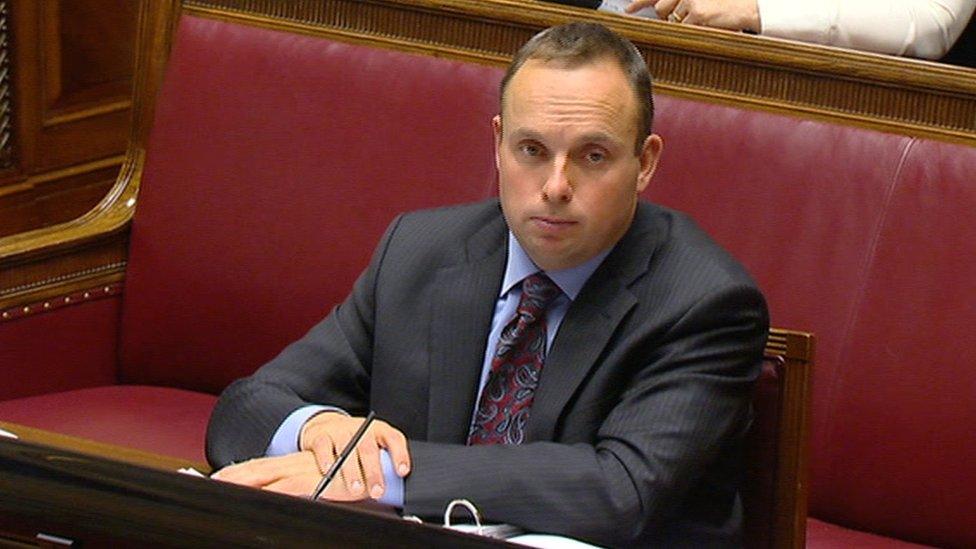
- Published13 September 2018
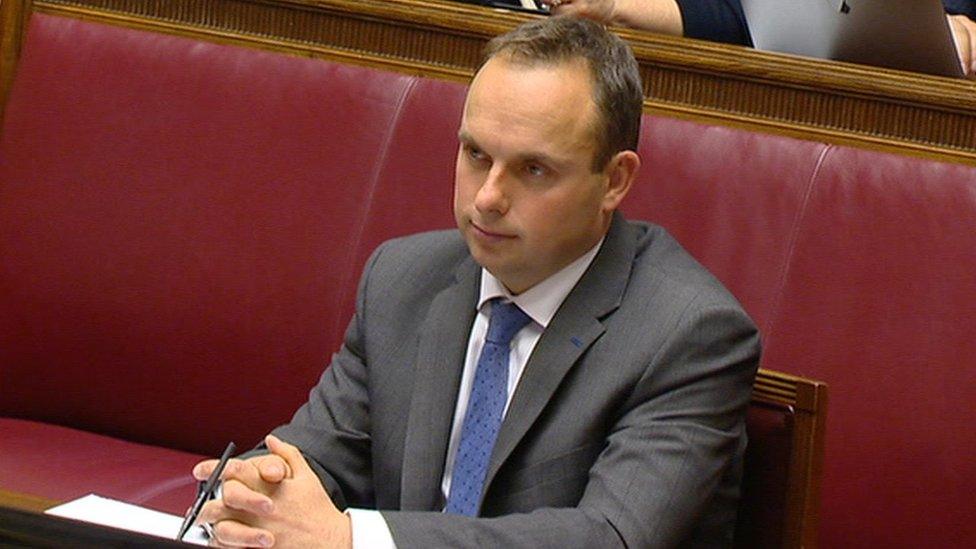
- Published12 September 2018
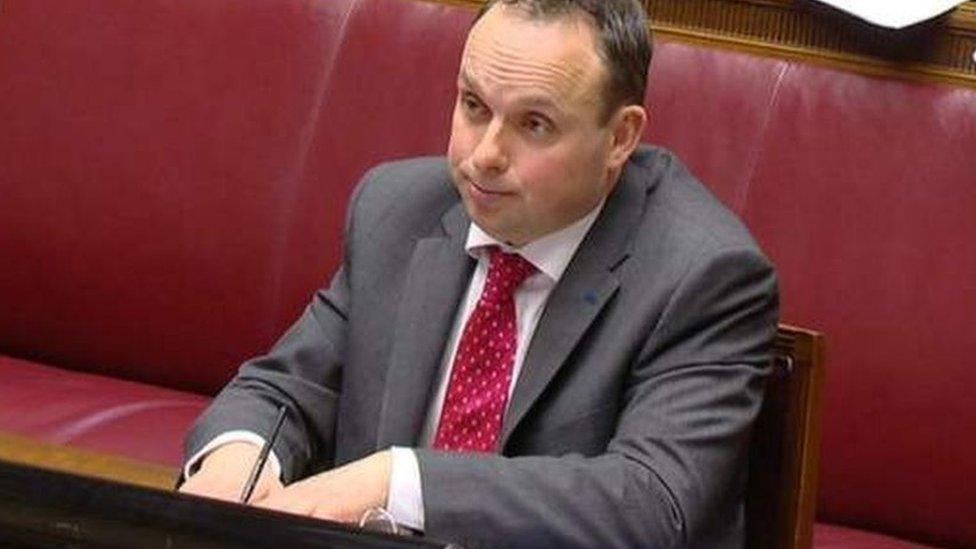
- Published11 April 2018
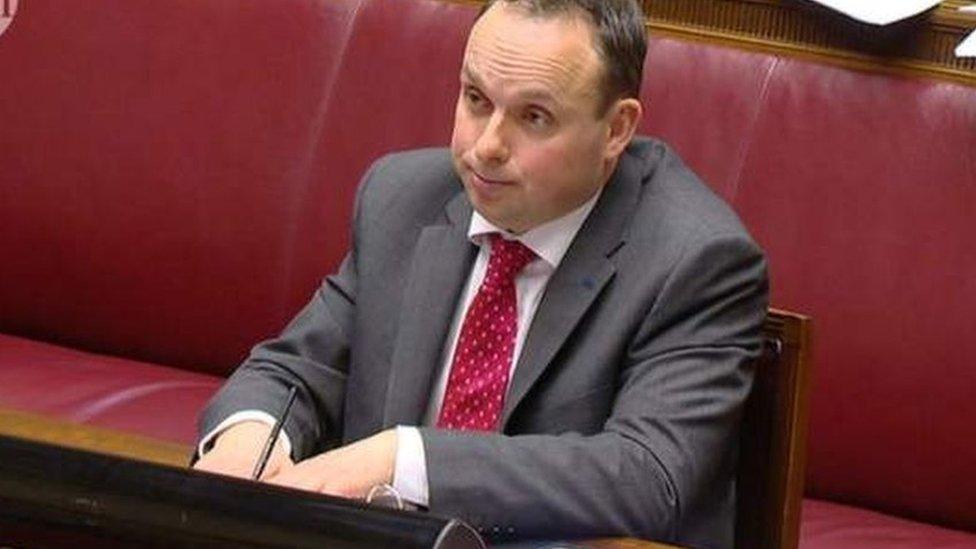
- Published11 September 2018
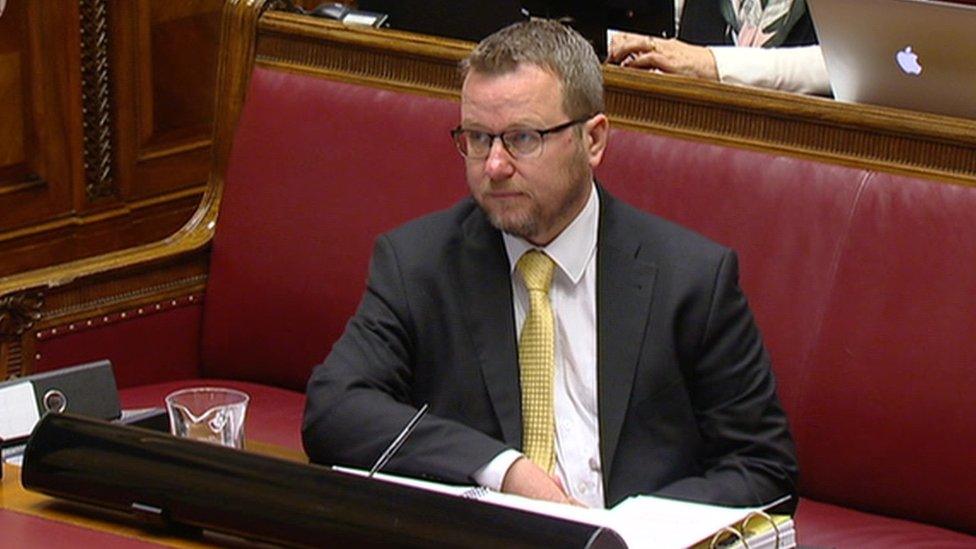
- Published11 September 2018
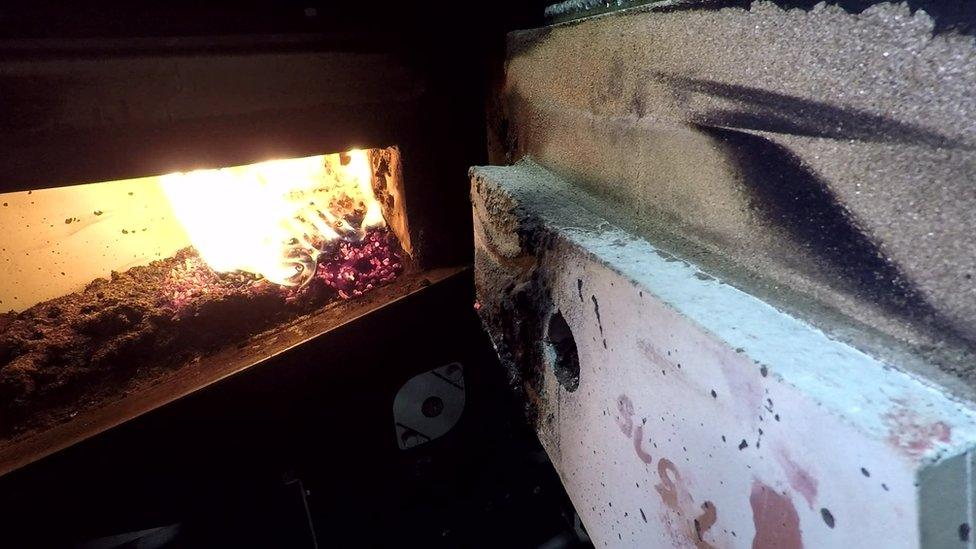
- Published7 September 2018
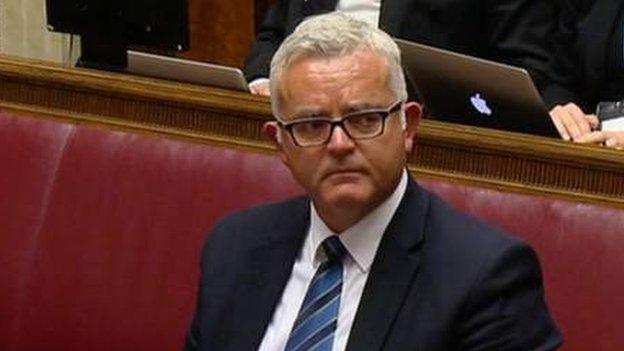
- Published7 September 2018
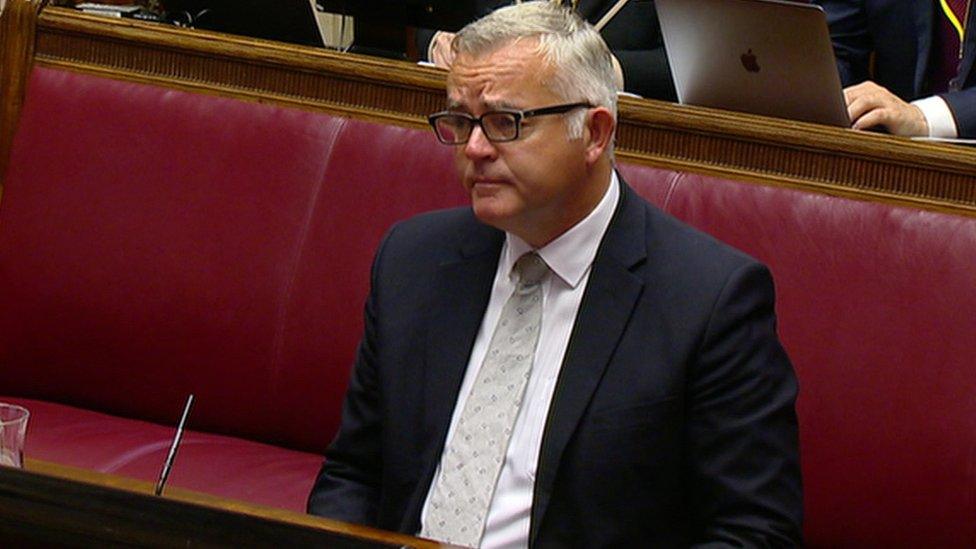
- Published5 September 2018
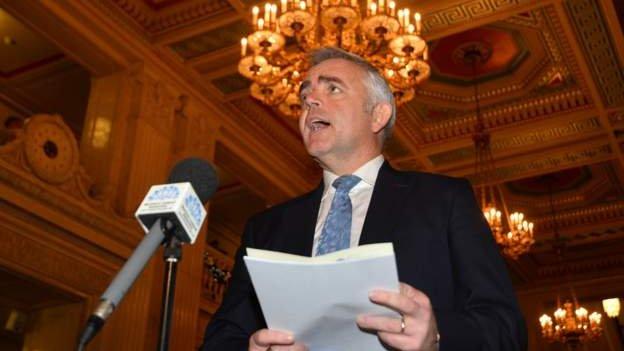
- Published5 September 2018
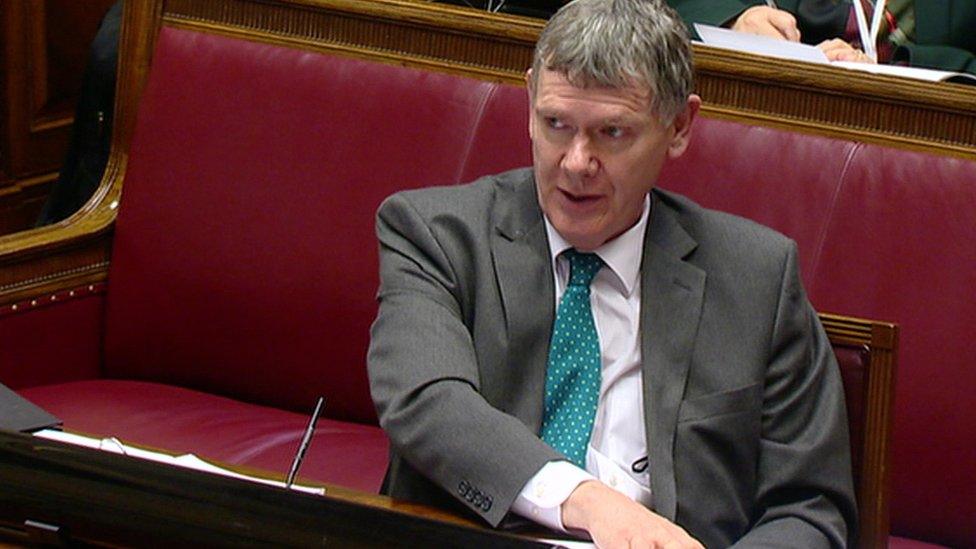
- Published5 September 2018
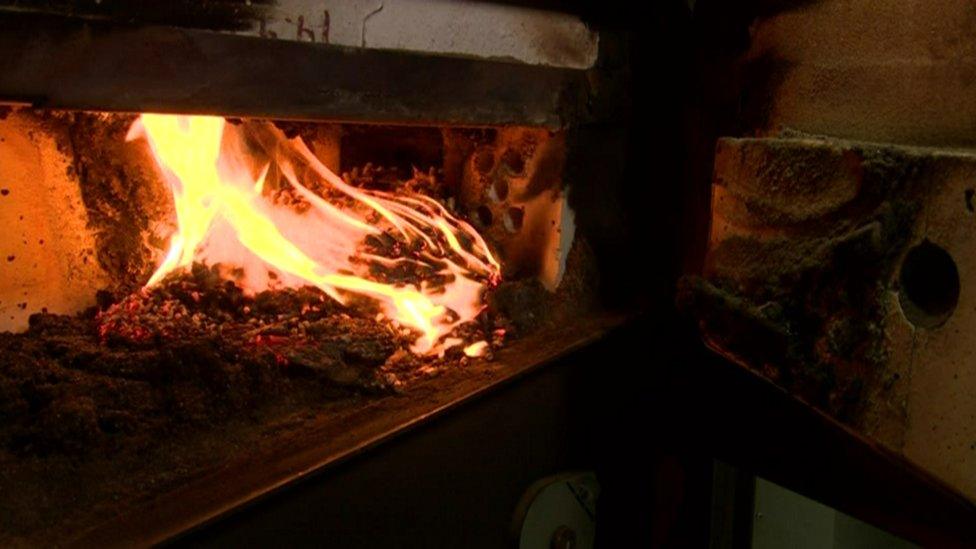
- Published13 March 2020
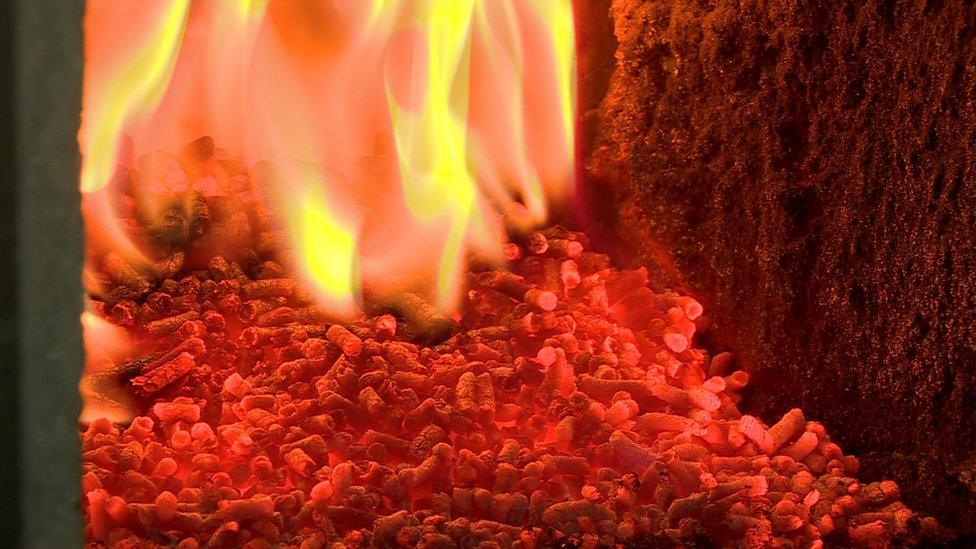
- Published4 September 2018
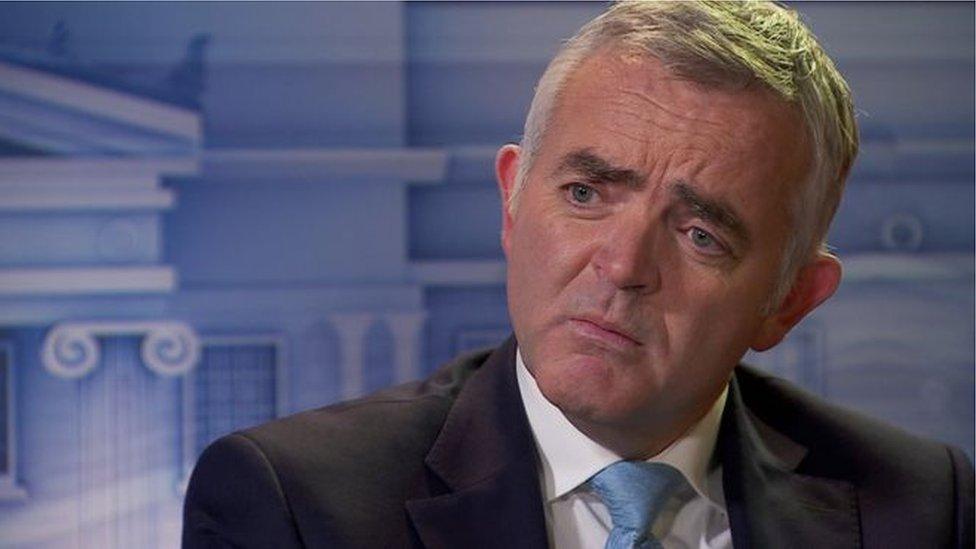
- Published17 April 2018
